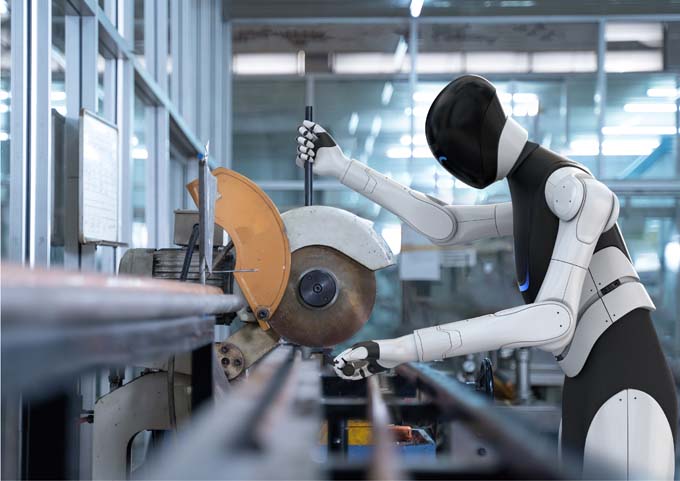"Excellent results are only possible with excellent personnel"
The once again excellent application dossiers of the finalists did not make it easy for the jury. Nevertheless, jury president Wolfgang Martz sees further potential for improvement in all the prize-winners

In total, six applications were received for this year's ESPRIX Swiss Award for Excellence. Five of them made it to the final, two more than last year. The low point reached in 2012 and 2013, when there was no award winner, now seems to have been finally passed.
Mr Martz, there were five finalists again this year. To what extent do you interpret this as a sign of the increased interest in EFQM?
Wolfgang Martz: I attribute this development primarily to the fact that the ESPRIX Foundation and its management have done a lot to make the EFQM level model better known. A lot of networking and many events have been carried out with the result that around 50 companies at all levels receive awards every year. This brings more and more candidates into the pipeline to later apply for the award at the top level.
Among this year's finalists, three are from the education sector. Does that surprise you? I interpret this as follows: In many schools, the EFQM model is often used to identify potential for improvement. More and more of them are therefore asking themselves: Why don't we use this model for an external assessment? It is of course very gratifying when schools have themselves validated. This creates a great multiplier effect.
Where do you see the reasons for the fact that in recent years there have hardly been any classic industrial companies in the final?
In fact, in the early days of the award, many companies from the second sector of the economy were among the winners. I see the fact that there are more service companies today as a sign of the times. On the one hand, this sector is growing strongly and, on the other, industry has been going through a difficult phase since 2008/2009. Nevertheless, many industrial companies are heavily involved with the EFQM model. But recently, other priorities have probably been in the foreground than applying for an award.
Especially since such an application means a considerable additional effort to the daily business. How can this effort be roughly quantified?
I can speak from my own experience as a 2002 award winner with Groupe Minoteries SA: It's about 1 to 2 man-years of extra work. But the payback is already visible after six months. A lot of time is usually needed to review and analyse the past before you can deal with the actual future of the organisation. But this is the only way to get it fit and ready for the future in the long term.
And is the company better equipped to weather difficult times?
Yeah, absolutely.
Back to this year's finalists: What was different about their validation compared to previous years? Was there anything that particularly stood out?
Actually, no. Each company has its own strengths and special features. The only thing worth mentioning here is that, for the first time in a long time, BMW (Schweiz) AG was a classic distributor in the final.
Two years ago, you said about the then finalists that the involvement of employees was particularly high. In other words, companies that are committed to business excellence are "better" employers?
What does "better" mean? The only thing that can be said in the affirmative is that excellent companies constantly question themselves anew. What can be further improved? Where do we want to develop? This keeps a lot of things in motion. This sometimes causes problems for those employees who simply want to do their job. Others, however, who want to move forward dynamically, have no problem with this - and they are then rewarded for it. The result is that a dynamic company also hires dynamic people, while others leave it.
Speaking of "dynamic": The ISO 9001 standard has just been revised and has moved closer to the EFQM model in some aspects. What does this mean for the future of the ESPRIX Swiss Award for Excellence?
It is of course very pleasing that ISO 9001 and EFQM have converged. This shows that the EFQM model is now widely recognised. I think this will lead to ISO-certified companies increasingly wanting to improve via the EFQM model, thus ensuring an even larger pipeline at the various levels. On the other hand, organizations may also be more likely to think that ISO 9001:2015 is sufficient for their purposes.
Finally, what advice can you give the finalists for their future goals/milestones?
I see the greatest potential for improvement in the introduction of RADAR logic for the implementation of the strategy and development of the organization. Also, measuring KPIs (key performance indicators), comparing them and drawing conclusions is not done equally well in all companies. One cannot simply compare oneself with the neighbours, but should measure oneself against the "best in class". It is all the more important to keep your ambitions constantly high in order to improve further. In short: Identifying potential is very successful, but measuring and comparing it is often a different matter.
Because it's very demanding?
Yes, that's certainly the case. Candidates who won a prize a few years ago would probably not all make it to a final today. From my long experience I can say: Excellent results are only possible with excellent personnel. These people serve as role models and bring about better results.









